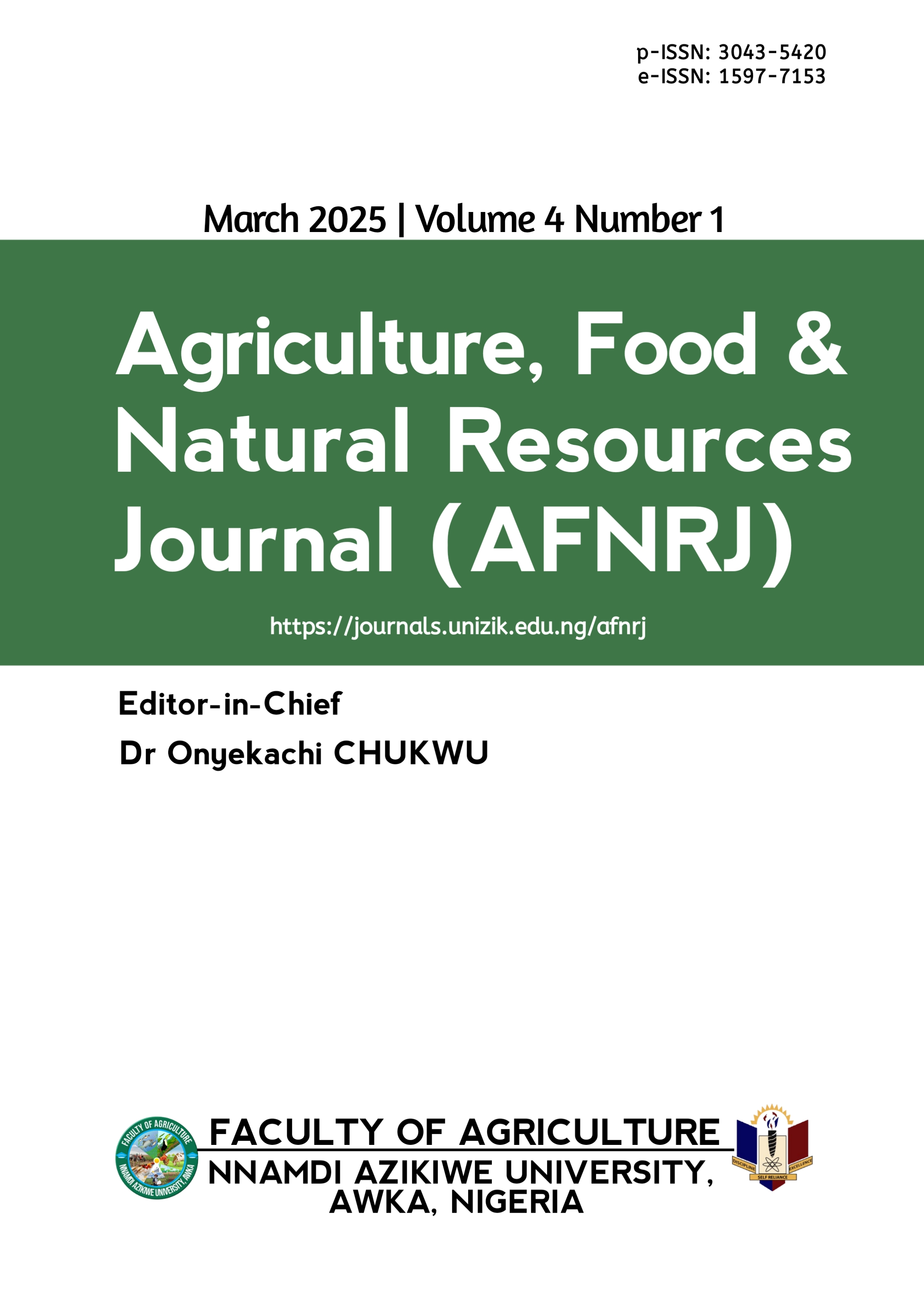Effects of participation in the village alive development initiative on the socioeconomic status of beneficiaries in Kwara State, Nigeria
DOI:
https://doi.org/10.5281/zenodo.15105495Keywords:
Credit access, Economic resilience, Empowerment, Sustainable development, VADIAbstract
This study investigates the impact of the Village Alive Development Initiative (VADI) on the socioeconomic status of rural farmers in Kwara State, Nigeria. The primary aim was to assess how VADI, initiated by the Agricultural and Rural Management Training Institute (ARMTI), impacted on the livelihoods of small-scale farmers through training, credit access, and capacity building. Employing a three-stage sampling method, 120 beneficiaries were surveyed to gather data on their socioeconomic characteristics and the perceived benefits of VADI. Frequency counts, percentages and weighted mean scores (WMS) were used for data analysis. Key findings reveal that participants reported significant improvements in their economic conditions, with increased income (WMS = 3.34) and productivity attributed to enhanced access to credit (WMS = 3.78). Also, the intervention helped beneficiaries to reduce post-harvest losses (WMS = 3.24) and facilitated diversification of income sources during the dry season (WMS = 3.37). The study concludes that VADI effectively empowers rural dwellers, promoting sustainable development and economic resilience. Recommendations include streamlining loan disbursement processes, increasing educational initiatives, and establishing local banking facilities to further support beneficiaries.
Downloads
Published
Issue
Section
License

This work is licensed under a Creative Commons Attribution 4.0 International License.
which permits unrestricted use, distribution, and reproduction in any medium, provided the original author and source are credited.
Authors retain the copyright of their published work in the AFNRJ.





